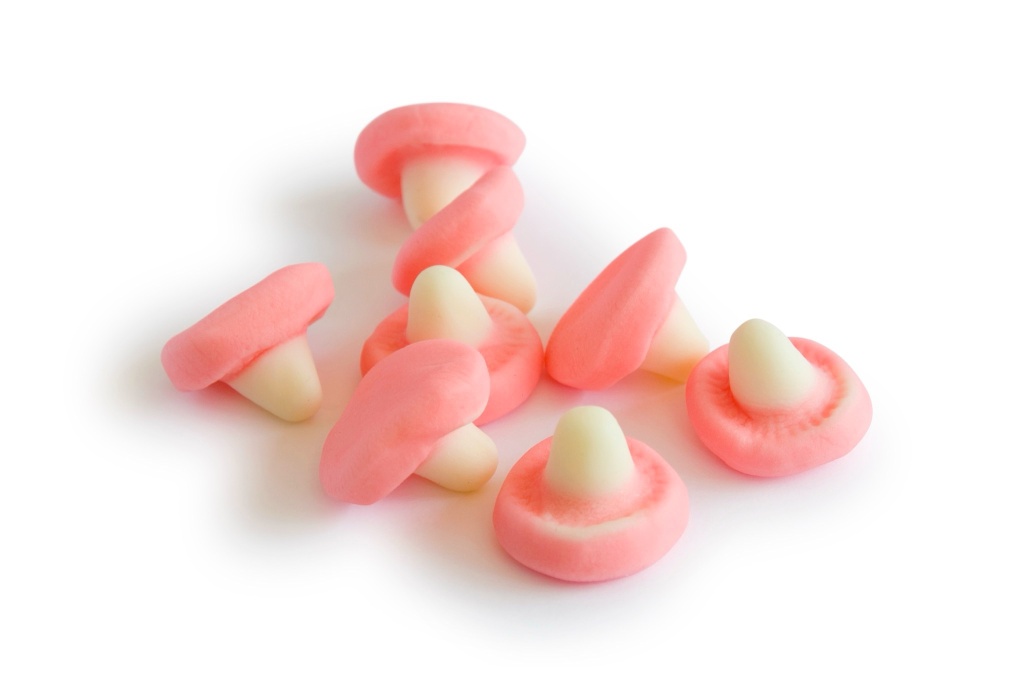Alarming study raises questions about magic mushroom edibles

Psychedelics are gaining traction as people seek out alternative ways to cope with mental health conditions. Two states have legalized psilocybin (aka magic mushroom) therapy, and other communities have decriminalized certain psychedelic compounds. However, a proliferation of unregulated products on the market promising to give users a “trip” has raised eyebrows—and a new magic mushroom edibles study shows that users may not be getting what they bargained for.
Researchers conducted tests on 12 “magic mushroom” edibles sold in shops around Portland, Oregon. The samples included 11 gummy products and one chocolate brand. A team at Oregon State University (OSU) led the study. No conflicts of interest were disclosed.
RELATED: Why ‘shrooms help some people—and not others
After being sent to a licensed mushroom testing facility, it was revealed that none of the samples actually contained psilocybin, the active ingredient in ‘shrooms.
Instead, the analysis showed a wide range of results. Several of the products had unidentified active ingredients like kava, caffeine, or even THC. A few had no active ingredients at all. Two had psilocin, another psychoactive compound found in magic mushrooms.
Researchers believed the psilocin to be synthesized. And that wasn’t the only lab-made psychedelic they found.
RELATED: AI is guiding psychedelic trips – experts say it’s risky
Two of the tested samples contained Mipracetin and 4-hydroxy-diethyltryptamine, which are synthetic compounds that mimic the effects of mushrooms. The results were alarming, given that research on the drugs is extremely limited.
“We don’t know what harm they might cause,” study co-author Richard van Breemen told Scientific American. The researcher acknowledged that while the sample size was small, the results were “significant,” as it’s rare for so many tested supplements to be mislabeled.
While Oregon has approved the use of these compounds for regulated therapy, psilocybin is supposed to be strictly controlled. Guided trips can also be costly. Psilocybin also remains a Schedule I substance on the federal level, making it difficult (and illegal) for most people to obtain. This has led consumers to seek out cheaper and more accessible alternatives, such as those in the OSU study.
RELATED: A Hollywood icon’s unlikely love affair with LSD
Officials at the Food and Drug Administration (FDA) have raised a red flag on unregulated psychedelic products. Last year, they issued a warning to makers of goods containing Amanita muscaria, another psychedelic compound found in certain mushrooms. The warning came after a high-profile recall of amanita products that were believed to be responsible for several illnesses and possibly deaths.
The OSU study shows consumers must take caution when purchasing or consuming unregulated products marketed as psychedelics. Just because a label says one thing does not make it true—and the risks may far outweigh any potential benefits.
